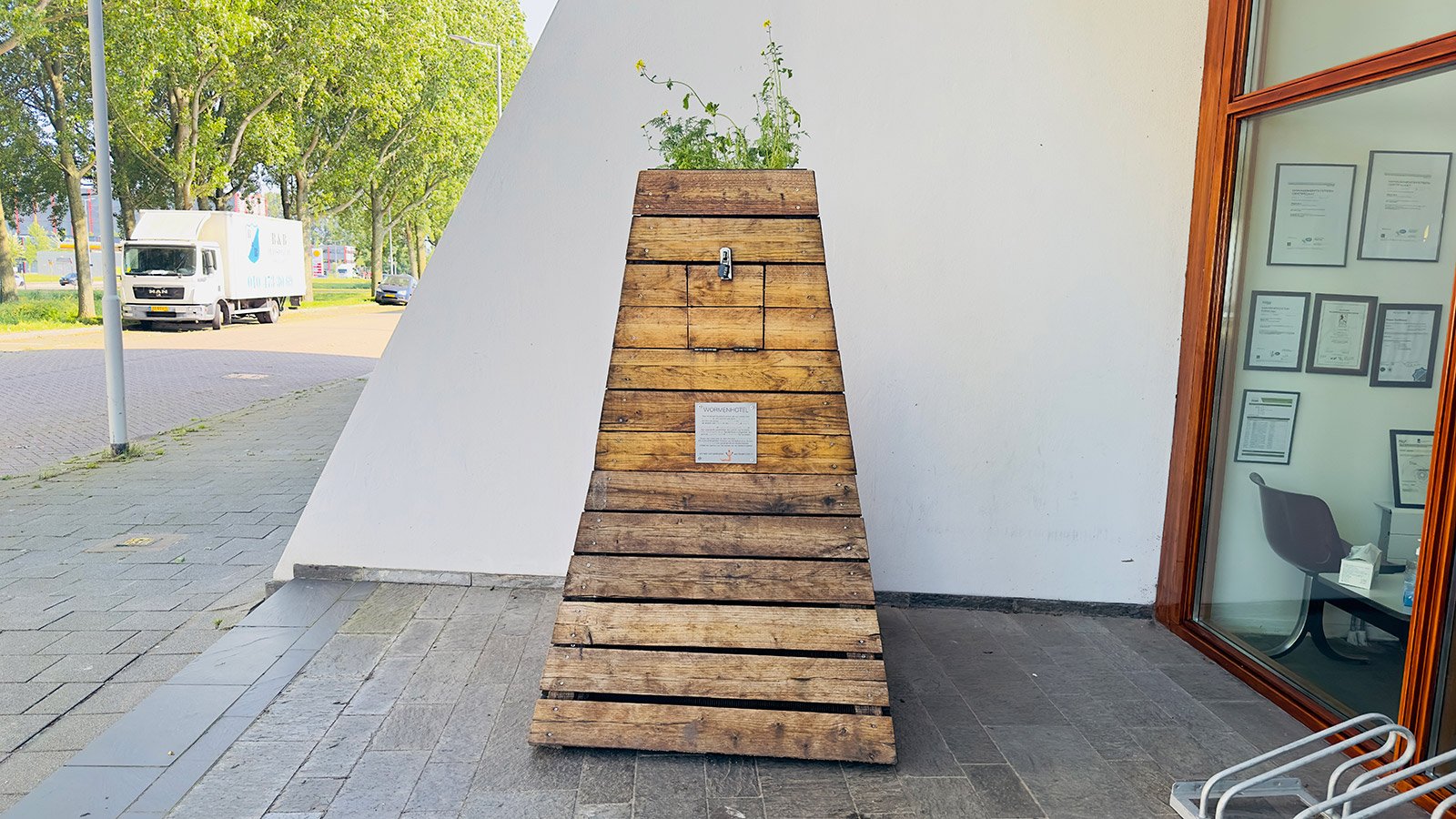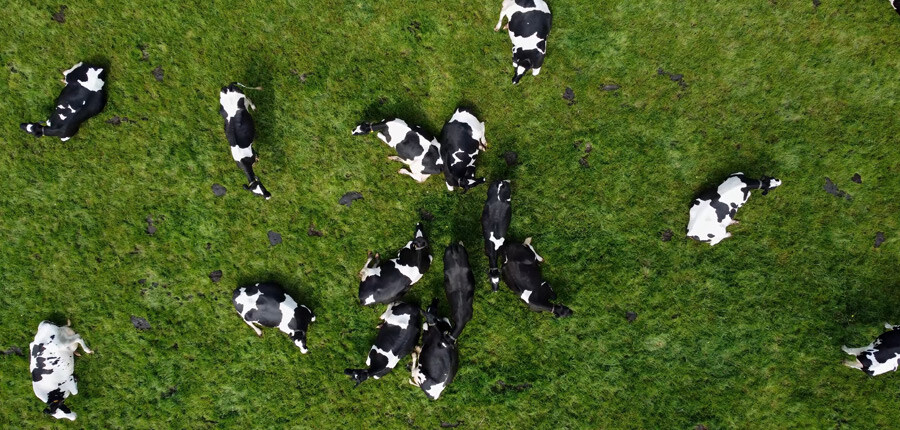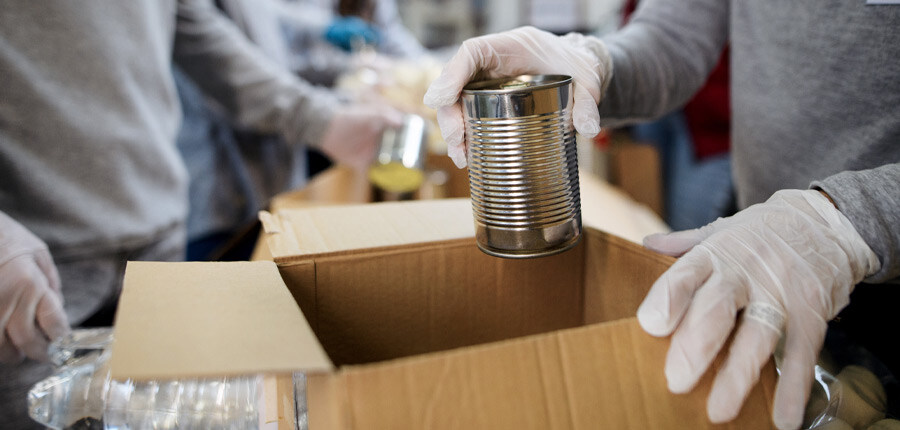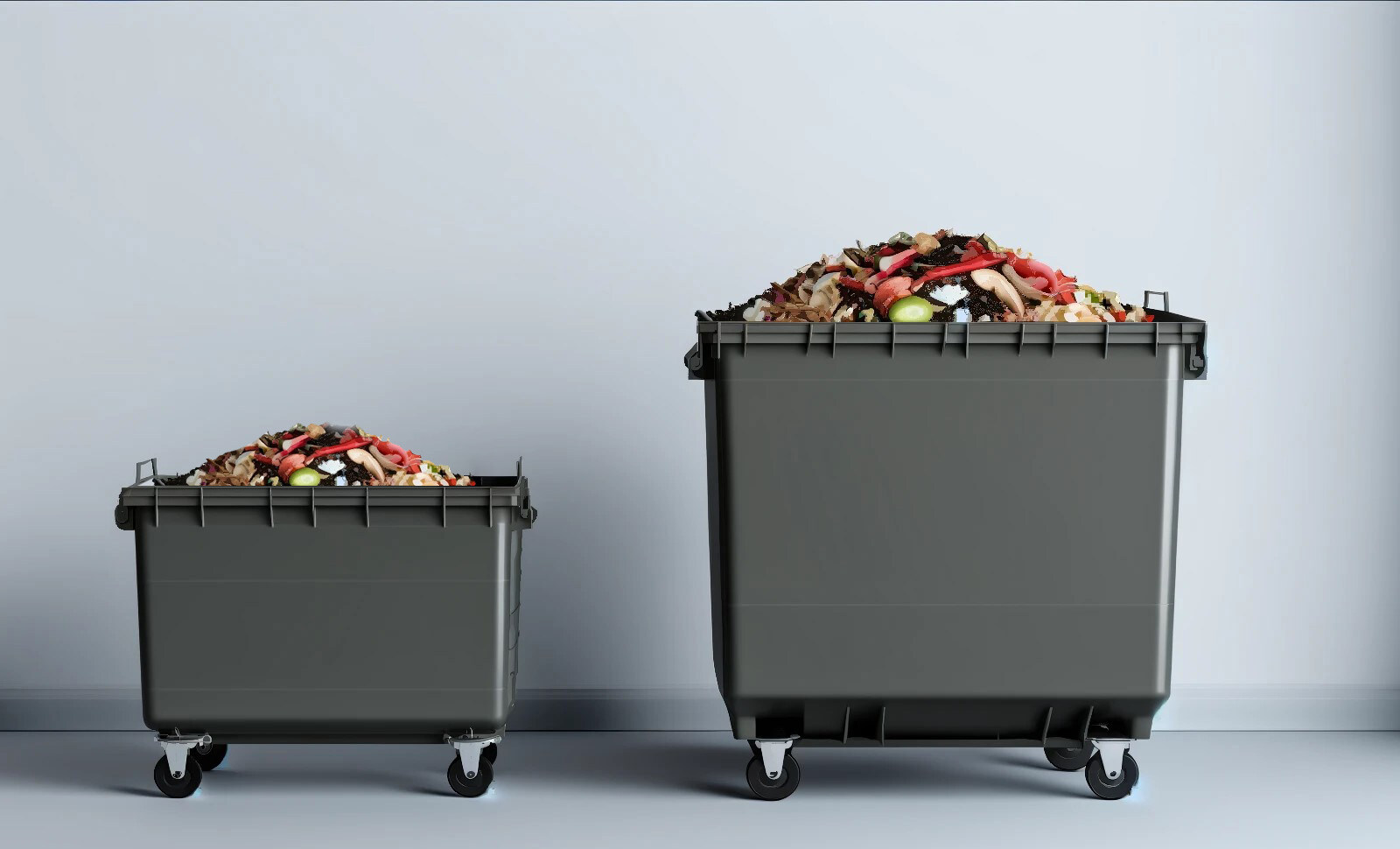As a company with sustainability goals, you are always looking for ways to minimize the ecological impact of your company. An effective strategy is the sustainable management of organic waste. There are several environmentally responsible solutions for organic waste, regardless of the size of the waste stream. In this article we share practical tips and solutions for both small and large organic volumes.
What is organic waste?
Organic waste includes material from living organisms, such as food scraps and kitchen waste (swill). GFT (vegetable, fruit and garden waste) consists of uncooked material, while swill contains both cooked and uncooked food. Organic waste can be packaged or unpackaged, where packaging can pose challenges for recycling or reuse.
Solutions for small organic volumes
For small amounts of organic waste, such as cores or banana peels, there are simple and effective solutions:
- Bokashi bucket: This is a sealed container in which kitchen waste is fermented into food for plants. The Bokashi bucket is suitable for cooked food, meat and fish, and produces a liquid that can be used as plant food. The compact size makes it ideal for office environments.
Solutions for large organic volumes
For larger quantities of organic waste, more robust solutions are needed:
- Worm hotel: In a worm hotel, worms are added to the organic material, where they digest the waste and convert it into compost. This compost can then be used as nutrition for the soil. Worm hotels come in different sizes, depending on the amount of organic waste a company produces.

- Composting installation: Composting via composting installations is also an option for the industry. Composting then takes place on a large scale in long tunnels. These tunnels are also used to process all household organic waste. In this case, the organic waste is collected. For on-site composting, companies can also consider a composting machine in addition to a worm hotel. This is faster than a worm hotel, but also costs energy.

- Animal feed: For other organic flows it can be processed as an ingredient for animal feed under certain conditions. This helps reduce waste and gives it a useful purpose.

- Food for food: Consider offering leftovers or surpluses to initiatives such as Too Good To Go, the food bank or De BuurtBuik.

- Industrial fermentation: When reuse in the form of compost or animal feed is not possible, swill and other organic waste can be transported to an industrial fermentation plant. Here the waste is used for the production of biogas, a sustainable energy source.

Organic processing methods, ecologically compared
Whichever method you choose, it is important to think carefully about all the ins and outs. That is why we have listed all the to consider factors for you:
Example: industrial fermentation fermentation
During fermentation, organic waste is converted into biogas through microbial activity in an anaerobic environment. The resulting biogas can be used for energy production (electricity, heat or fuel).
Biogas can replace fossil fuels, which contributes to the reduction of CO2 emissions.
The digestate that remains after fermentation can be used as fertilizer, which contributes to the nutrient cycle.
Reduces the amount of organic waste going to landfills, which reduces methane emissions from landfills.
Fermentation requires significant initial investment and infrastructure, and efficiency can vary depending on the type and consistency of the organic waste.
Fermentation is in fourth place on Moerman's ladder, after prevention, repurposing for human consumption, and reuse in animal feed. It is a sustainable method, but there are more effective ways to reduce food waste.
Example: worm hotel Composting
Composting is an aerobic method in which microorganisms break down organic material into humus-like compost, which can be used as a soil improver.
Compost improves soil structure, water retention, and promotes healthy soil life, increasing the productivity and resilience of agricultural lands.
Composting helps store carbon in the soil, which contributes to climate change mitigation.
Reduces the amount of organic waste going to landfills, thus reducing methane emissions.
The process can produce odors and greenhouse gases such as methane and nitrous oxide if not managed properly.
Composting ranks fifth on Moerman's ladder. It is less sustainable than prevention, repurposing for human consumption, reuse in animal feed, and fermentation, but still a valuable way to process organic waste.
Example: animal food Reuse in animal feed
Organic waste, such as food scraps, is processed and used as animal feed.
Reusing organic waste as animal feed reduces the demand for new raw materials for animal feed.
Reduces the amount of waste going to landfills or incinerators.
There are strict regulations and safety standards for the use of food waste as animal feed to ensure the health of animals and humans. Not all types of organic waste are suitable for animal feed.
Reuse in animal feed ranks third on Moerman's ladder. This is a very sustainable method because the waste is immediately put to a useful purpose, reducing the demand for new sources.
Example: Food bank Food-for-food initiatives
Food that would otherwise be wasted is redistributed through food banks, apps such as Too Good To Go, or initiatives such as Instock.
These initiatives ensure that edible food is not wasted, helping to reduce global food waste.
Food banks and similar initiatives support communities by providing food to those in need.
Reducing food waste reduces greenhouse gas emissions associated with the production, transportation and processing of food.:
The success of these initiatives depends on logistical efficiency and cooperation between different stakeholders (producers, stores, consumers).
Repurposing for human consumption (such as food-for-food initiatives) is in second place on Moerman's ladder. It is one of the most sustainable ways to prevent food waste because the food is directly reused by people.
Conclusion
These insights help make strategic choices for more sustainable management of organic waste. At Milgro we have extensive experience in managing organic waste streams and can help you find the best solutions for your situation. Our expertise ensures that you make the most ecologically and economically responsible choices. Whether you have a small office or a large company, we offer tailor-made solutions that suit the size and nature of the organic waste.
Contact us to discover how your company can contribute to more sustainable organic waste management.






